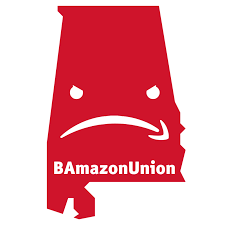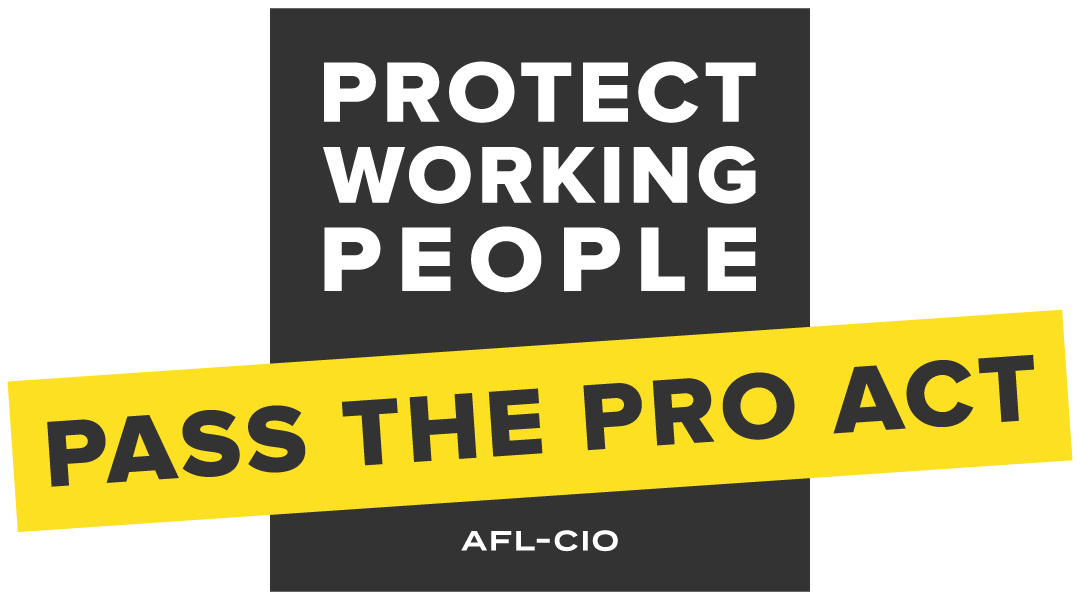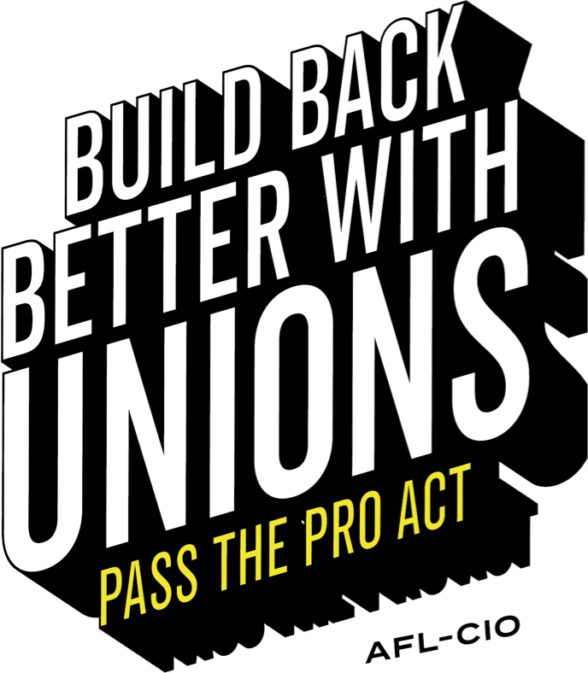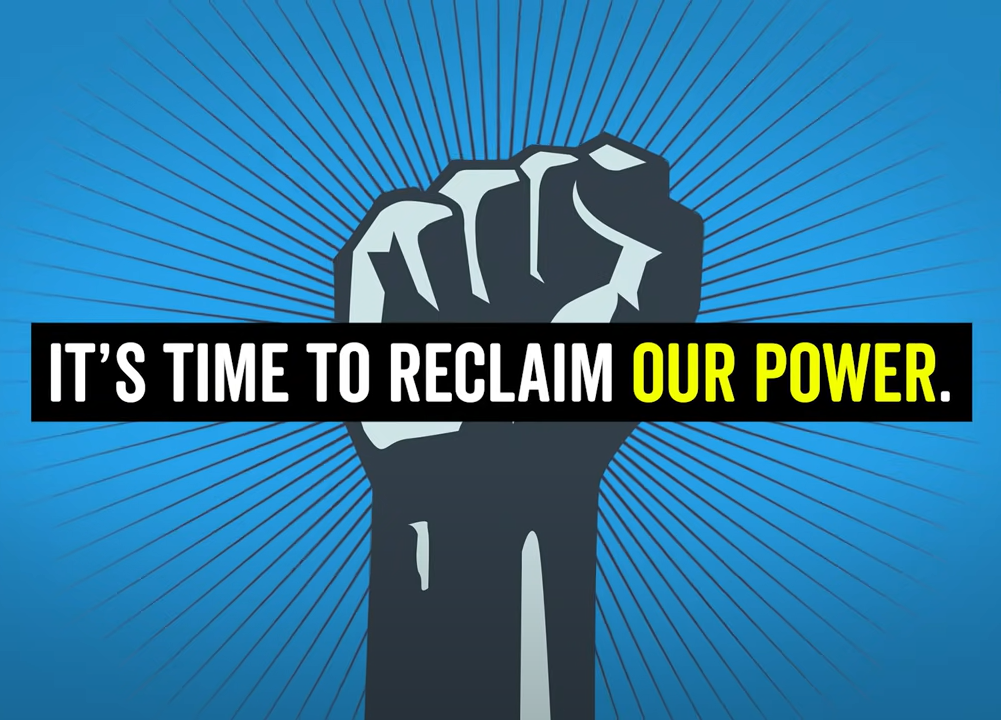
The PRO Act and Right to Work
“Right to work” is the name for a policy designed to take away rights from working people. Backers of right to work laws claim that these laws protect workers against being forced to join a union. The reality is that federal law already makes it illegal to force someone to join a union.
The real purpose of right to work laws is to tilt the balance toward big corporations and further rig the system at the expense of working families. These laws make it harder for working people to form unions and collectively bargain for better wages, benefits and working conditions.
The PRO Act Would Override State Right to Work Laws
The PRO Act would give unions and employers the freedom to negotiate “fair share agreements,” which right to work laws prohibit. Fair share agreements make sure that everyone who benefits from union representation—higher wages, better benefits and job protections—pays their fair share to cover the costs of representation, collective bargaining, contract enforcement and related costs. Unions are required by law to represent nonmembers and members alike, and this representation costs money.
The History of Right to Work Laws
Right to work laws have a dark history. They are the product of extreme white supremacist and pro-segregationist elements in the 1940s South. At that time, not only were unions expanding their bargaining power—and therefore improving the wages and working conditions for all workers, including workers of color—but many were also fighting to end Jim Crow and segregation. Advocates of right to work laws warned that if their efforts failed, “white women and white men will be forced into organizations [labor unions] with black African[s] whom they will have to call ‘brother’ or lose their jobs.”
Indeed, civil rights leaders like Dr. Martin Luther King Jr. acknowledged the racist and anti-worker goals behind right to work laws. Dr. King saw the fight for civil rights and economic justice as inherently connected. In 1961, he explained that:
“In our glorious fight for civil rights, we must guard against being fooled by false slogans, such as ‘right to work.’ It is a law to rob us of our civil rights and job rights. Its purpose is to destroy labor unions and the freedom of collective bargaining by which unions have improved wages and working conditions of everyone….Wherever these laws have been passed, wages are lower, job opportunities are fewer and there are no civil rights.”
Right to Work Laws Are Bad for the Economy
Right to work laws have had the effect of lowering wages and eroding pensions and health care coverage in states where they have been adopted. The argument that this is good for the economy is a relic of discredited “trickle down” economic theory, which has never worked, as President Biden recently observed.
The PRO Act Would Not Force Employees to Become Union Members
As explained above, the PRO Act would allow employers and unions the freedom to negotiate fair share agreements. The purpose of these agreements is to avoid the free-rider problem that arises when nonmembers who receive all the benefits of being in the union do not pay their fair share of the costs of collective bargaining, thereby weakening union power.
The PRO Act Would Not Force Workers to Pay Union Dues to Keep Their Jobs
“Fair share fees” are not union dues and no employee would be required to join the union. If the employer and the union do choose to negotiate a “fair share agreement,” and the employee authorizes the employer to deduct those fees, the employer would be required to comply by deducting fair share fees from the paychecks of employees who are not members of the union. Twenty-three states already allow the negotiation of such fair share agreements to address the free-rider problem.
Union representation is a form of democracy in the workplace. The PRO Act would make it easier for employees who want to form or join a union to do so, and higher union density has been shown to reduce economic inequality, which corrodes democracy.


